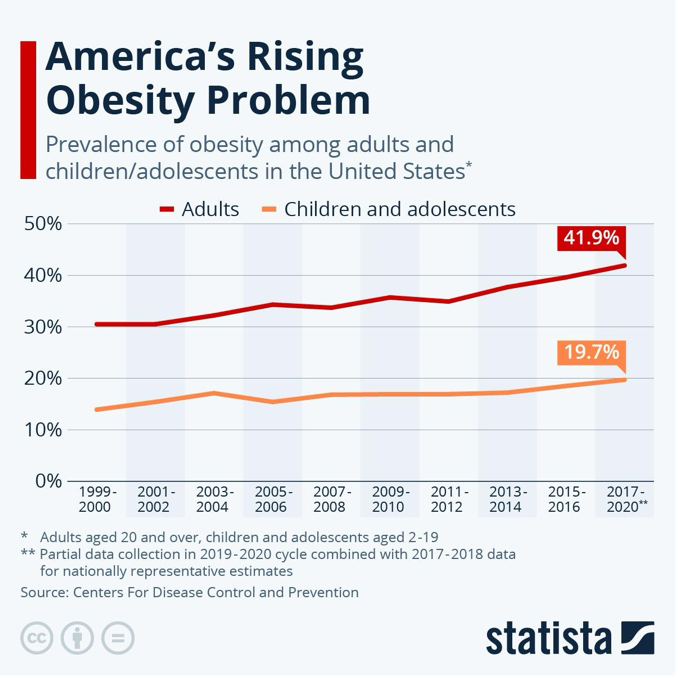“Here are the five main takeaways from this blog. Scroll down for the full story!”
- Probiotics and Postbiotics for Weight Management: Probiotics and postbiotics both play a role in managing weight by regulating fat storage
- SCFAs and Fat Storage: Short-chain fatty acids (SCFAs), a type of postbiotic, help your body burn fat for energy rather than storing it, while also reducing fat production and boosting fat breakdown, promoting overall weight management
- Probiotics Support Gut Health: Beneficial bacteria like Lactobacillus acidophilus and Bifidobacterium longum help balance the gut microbiome, reducing harmful bacteria linked to obesity and preventing excess fat accumulation
- Appetite Regulation: SCFAs regulate appetite by influencing hormones like leptin and GLP-1, helping you feel fuller and reducing cravings for better eating habits
- Metabolism Boost: SCFAs enhance metabolism by fueling energy production and regulating the breakdown of fat and sugar, supporting overall energy balance and metabolic health
Introduction
You have likely heard that probiotics and postbiotics are important for gut health, but did you know they also play a significant role in managing weight? In this blog, we will dive into how these helpful bacteria and postbiotics throw their weight around when it comes to keeping your body in balance!
Fat storage & probiotic protection
Postbiotics, especially short-chain fatty acids (SCFAs), have a remarkable ability to influence how your body handles fat1. SCFAs can help shift your body’s focus from storing fat to burning it for energy. They work by signaling the liver and fat cells to use fat as fuel rather than storing it, which can ultimately reduce overall fat storage and support weight loss.
But that is not all. SCFAs also help curb fat production in your body. They lower the activity of certain genes responsible for fat creation and simultaneously increase the activity of genes that break down and burn fat 2,3. In essence, SCFAs support your body in getting rid of excess fat, rather than contributing to new fat buildup.
Additionally, probiotics, like Lactobacillus acidophilus, Bifidobacterium longum, and Lactobacillus plantarum, further support weight management by promoting a healthier gut microbiome. These beneficial bacteria help reduce harmful bacteria linked to obesity while increasing beneficial bacteria that aid in digestion and metabolism. Research shows that probiotics can counteract weight gain caused by high-fat, high-sugar diets by restoring the balance of good bacteria in the gut, which can help preventing excess fat accumulation4.
Moreover, in a meta-analysis that reviewed 200 trials with over 12,600 participants6, it was found that taking probiotics led to significant improvements in weight and body composition6,8.
Appetite regulation
In addition to influencing fat storage, SCFAs also play a role in regulating appetite 2,3. They impact key hormones involved in hunger and metabolism, such as leptin and GLP-1. Leptin helps you feel full, reducing the desire to overeat, while GLP-1 not only helps regulate blood sugar but also plays a role in reducing appetite. By promoting the production of these hormones, SCFAs can support more controlled eating habits and contribute to weight management.
Metabolism
SCFAs, particularly acetate, propionate, and butyrate, play a valuable role in regulating your body’s energy balance5,7,9. These fatty acids serve as a source of fuel for energy production, influencing processes like fat creation, sugar production, and the breakdown of sugars. In doing so, they help regulate how your body uses and stores energy, making them key players in maintaining a healthy metabolism.
Summary
Probiotics and postbiotics offer a powerful one-two punch when it comes to managing weight. They not only help regulate fat storage and metabolism but also support appetite control and improve gut health. By balancing the bacteria in your gut, these beneficial compounds help your body function at its best, leading to better energy regulation and healthier weight management. So, let’s thank the powerful pro- & postbiotics for taking this weight off our shoulders!

References
1. Den Besten, G., Bleeker, A., Gerding, A., Van Eunen, K., Havinga, R., Van Dijk, T.H., Oosterveer, M.H., Jonker, J.W., Groen, A.K., Reijngoud, D.J., et al. (2015). Short-Chain Fatty Acids Protect Against High-Fat Diet–Induced Obesity via a PPARγ-Dependent Switch From Lipogenesis to Fat Oxidation. Diabetes 64, 2398–2408. https://doi.org/10.2337/DB14-1213.
2. Jiao, A., Yu, B., He, J., Yu, J., Zheng, P., Luo, Y., Luo, J., Mao, X., and Chen, D. (2020). Short chain fatty acids could prevent fat deposition in pigs via regulating related hormones and genes. Food Funct 11, 1845–1855. https://doi.org/10.1039/C9FO02585E.
3. Jiao, A.R., Diao, H., Yu, B., He, J., Yu, J., Zheng, P., Huang, Z.Q., Luo, Y.H., Luo, J.Q., Mao, X.B., et al. (2018). Oral administration of short chain fatty acids could attenuate fat deposition of pigs. PLoS One 13. https://doi.org/10.1371/JOURNAL.PONE.0196867.
4. Kong, C., Gao, R., Yan, X., Huang, L., and Qin, H. (2019). Probiotics improve gut microbiota dysbiosis in obese mice fed a high-fat or high-sucrose diet. Nutrition 60, 175–184. https://doi.org/10.1016/J.NUT.2018.10.002.
5. He, J., Zhang, P., Shen, L., Niu, L., Tan, Y., Chen, L., Zhao, Y., Bai, L., Hao, X., Li, X., et al. (2020). Short-Chain Fatty Acids and Their Association with Signalling Pathways in Inflammation, Glucose and Lipid Metabolism. Int J Mol Sci 21, 1–16. https://doi.org/10.3390/IJMS21176356.
6. Saadati, S., Naseri, K., Asbaghi, O., Yousefi, M., Golalipour, E., and de Courten, B. (2023). Beneficial effects of the probiotics and synbiotics supplementation on anthropometric indices and body composition in adults: A systematic review and meta‐analysis. Obesity Reviews 25. https://doi.org/10.1111/OBR.13667.
7. Schönfeld, P., and Wojtczak, L. (2016). Short- and medium-chain fatty acids in energy metabolism: the cellular perspective. J Lipid Res 57, 943–954. https://doi.org/10.1194/JLR.R067629.
8. Borgeraas, H., Johnson, L.K., Skattebu, J., Hertel, J.K., and Hjelmesæth, J. (2018). Effects of probiotics on body weight, body mass index, fat mass and fat percentage in subjects with overweight or obesity: a systematic review and meta-analysis of randomized controlled trials. Obesity Reviews 19, 219–232. https://doi.org/10.1111/OBR.12626.
9. Hu, J., Lin, S., Zheng, B., and Cheung, P.C.K. (2018). Short-chain fatty acids in control of energy metabolism. Crit Rev Food Sci Nutr 58, 1243–1249. https://doi.org/10.1080/10408398.2016.1245650.
